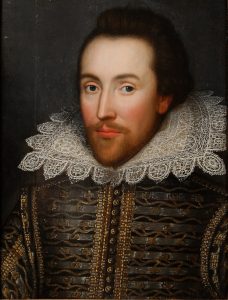Hamlet’s Soliloquy
WRITTEN BY:
William Shakespeare
NARRATED BY:
Michael Scott
Hamlet’s soliloquy “To be or not to be” from Act 3, Scene 1 of William Shakespeare’s play “Hamlet” is a profound exploration of the existential dilemma and the nature of human existence. The soliloquy reflects Hamlet’s internal struggle as he grapples with the harsh realities of life, the pain and suffering it entails, and the contemplation of death as a potential escape.
The opening line, “To be or not to be, that is the question,” encapsulates the central theme of the soliloquy, questioning the value of enduring the hardships of life versus embracing the uncertainty of death. Hamlet deliberates the merits and drawbacks of each option, contemplating the suffering that life brings, contrasted with the unknown aspects of what comes after death.
Moreover, the soliloquy delves into the fear of the unknown and the hesitancy to take action. Hamlet’s internal conflict and indecision are evident as he considers the consequences of both choices. The soliloquy not only provides insight into Hamlet’s troubled psyche but also resonates universally, inviting the audience to ponder the complexities of human existence.
Ultimately, “To be or not to be” is a timeless exploration of the human condition, mortality, and the philosophical quandaries that accompany the human experience. It remains one of the most iconic and studied soliloquies in literature, offering profound insights into the fragility of life and the eternal quest for meaning.
_______________
ThoughtAudio PDF Transcript: TA0136_HamletsSoliloquy_WilliamShakespeare.pdf
_______________

William Shakespeare
William Shakespeare, often hailed as the “Bard of Avon,” stands as one of the most influential figures in world literature. Born in 1564 in Stratford-upon-Avon, England, Shakespeare’s impact on literature transcends time and borders. His extensive body of work encompasses 39 plays, 154 sonnets, and two long narrative poems, collectively known as the Shakespearean canon.
Shakespeare’s plays are categorized into tragedies, comedies, and histories, showcasing his unparalleled ability to capture the complexities of the human experience. His characters, such as Hamlet, Othello, and Lady Macbeth, have become archetypes, reflecting timeless facets of human nature.
Language is one of Shakespeare’s greatest legacies. His innovative use of words, phrases, and poetic devices not only enriched the English language but also left an indelible mark on global literature. Expressions like “to be or not to be” and “star-crossed lovers” have become ingrained in everyday discourse.
Moreover, Shakespeare’s exploration of themes like love, power, ambition, and morality resonates across cultures and ages. His works continue to be performed, studied, and adapted, attesting to their enduring relevance. Shakespeare’s profound insights into the human condition, coupled with his linguistic brilliance, secured his place as an unparalleled literary giant, shaping the course of literature for centuries.
.
